A bill that requires all Nebraska public schools to have a cell phone policy by the 25-26 school year has officially been passed on Wednesday, May 14. Though the rules and regulations are primarily up to the district, this can cause schools to set a stricter policy regarding the use of communication devices during school hours or “a school instructional function”.
“The district does a good job encouraging teachers to have caddies.” Reports Styx history teacher, Mr. Dave Lawrence. But the caddie system in the building does have some holes. “Students are carrying around some old burner phones.” Though it does require students to place a device in a pocket, there are always ways around it. The caddie system is a start, but it’s not a flawless policy.
The new legislation proposed will not just prohibit the use of cell phones, but all communication devices. This includes smart watches that can also be used to access the internet, text messages, and google.
Not everybody will be affected, there are a few exceptions to this policy. Those who use their devices for medical purposes, required by a previously specified 504 plan, or in a case of emergency, will be allowed to access their phones during class hours.
“I still feel that each school district should decide their policies on their own.” Lawrence shares. There have been many different developing opinions on this matter. There are several different positive aspects that new regulations could bring, but there are many additional negatives. –Tessa Huebert
Phones in classrooms come with many struggles, what are they?
While phones are a large part of students’ lives at Papillion La vista South, they’re not the only ones affected by change in policy. Teachers are a vital piece in regulating students and technology in their classroom and enforcing district policy.
Beth Dyrstad, a Freshman math teacher for team Styx, notes that “I mean it’s addicting for me, but I think for teenagers it’s almost just harmful”. Drystad holds a very strict policy in her classroom, with students having to put their phones in a labeled caddy every day. Labeling helps keep students accountable and refusal to follow her policy results in a visit to the Freshman Principal, Jessica Prusha. She believes that, “If they’re on their smartphones they’re not listening to instruction and learning what they should be”
Not only do phones affect students through distraction, Dyrstad believes that they have greatly impacted students’ attention span. “Your generation just doesn’t have to wait for anything” “You don’t have commercials on TV, you have TikTok with short bursts so you’re just not used to sitting and getting information for an extended amount of time”. With so many long term effects of phone use, Dyrstad and others believe that limiting phones in the classroom, “Would be so much better for mental health, it’s a huge problem”
Larue Diehl, a Health Science teacher at Papillion La Vista South, is just one of many who agrees with her. “I think the phones enlarged adolescent rates of depression and anxiety”. Diehl, similar to Dyrstad, holds to a very strict no phone policy in his classroom. He notes, “Even before I started teaching here, which was 14 years ago, I have never allowed phones. I’ve never seen it other than an unnecessary distraction”.
Diehl explains the relationship between students and their phones similar to the Skinner Box experiments, conducted during the 1950s, where a rat was able to push a lever that would connect to the pleasure centers of the brain. He says, “And what the rat does is just sit there and hit that bar over and over again, and it ignores all other functions”. Diehl also has the unfortunate prediction that society will become completely dependent on phones and “Will soon be one dead battery away from being total morons” –Audrey Evans
Smartphones in class: A distraction, or a learning tool?
At Papillion Lavista South High School, phones and AI tools like ChatGPT are becoming more than just distractions, they’re evolving into powerful learning aids. As technology continues to grow, many teachers are finding ways to integrate it meaningfully into their teaching, encouraging students to use their devices responsibly and effectively.
Mrs. Beth Drystad, a freshman math teacher known for her strict classroom expectations supports using phones with boundaries,“ I definitely think there’s a time and a place for them and teaching you guys how to use them properly is a good tool because we’re not going to get rid of them, like it’s something that’s here to stay”
Mrs. Stacey Mielke, who teaches French, agrees that phones can be a useful classroom resource, especially for helping students stay organized and keep up with information, “ I think they can be used to take pictures of things on the board so that student has accessed to information given in class if they maybe can’t take notes on”
It’s easy to blame phones or technology like ChatGPT for the rise in cheating. But the truth is, these tools aren’t the problem. The real issue is how people choose to use them. When someone uses tools to cheat, that’s not the phone’s fault, it is a reflection of character.
Both teachers support the idea of preparing students for real-world technology use, while still emphasizing the importance of character and honesty. “I don’t hate many things, but I hate cheating and I hate lying”, Dyrstad added. “So that I feel very strongly about and I just think teaching people to have integrity and is a really important thing
In addition to phones, artificial intelligence is sparking new conversations in education, Mr Larue Diehl, a health teacher at Papio South, recognizes both the potential and responsibility that comes with using tools like ChatGPT
“ Chat GPT, I view it as…, I avoid using AI, but if I did, I’d be very effective at it, because I can evaluate the output of AI, because I have a high level of skill, and anything I’m going to ask AI to do – whereas students don’t.”
To further highlight the importance of learning before relying on AI, Diehl even uses a visual reminder in his class
“In fact, I have an actual crutch in my room that I have tape on the top and wrote Chat GPT on. So there’s going to be like, you’ll be the last generation who will both, like, learn the skills and use Chat GPT, and it will actually increase your power to do thing”
The message from teachers is clear, phones can enhance learning, but only when used with honesty, discipline and intention. Technology isn’t the root of cheating, character is. At Papio South, teachers are working to guide students not just in how to use devices, but in how to grow as ethical and responsible learners. –Raelyn Kaimikaua


![Pictured above is a structure that displays the names of Nebraska Vietnam veterans in order to “honor [their] courage, sacrifice and devotion to duty and country.”](https://plsouthsidescroll.com/wp-content/uploads/2025/10/Trey_092625_0014-e1760030641144-1200x490.jpg)



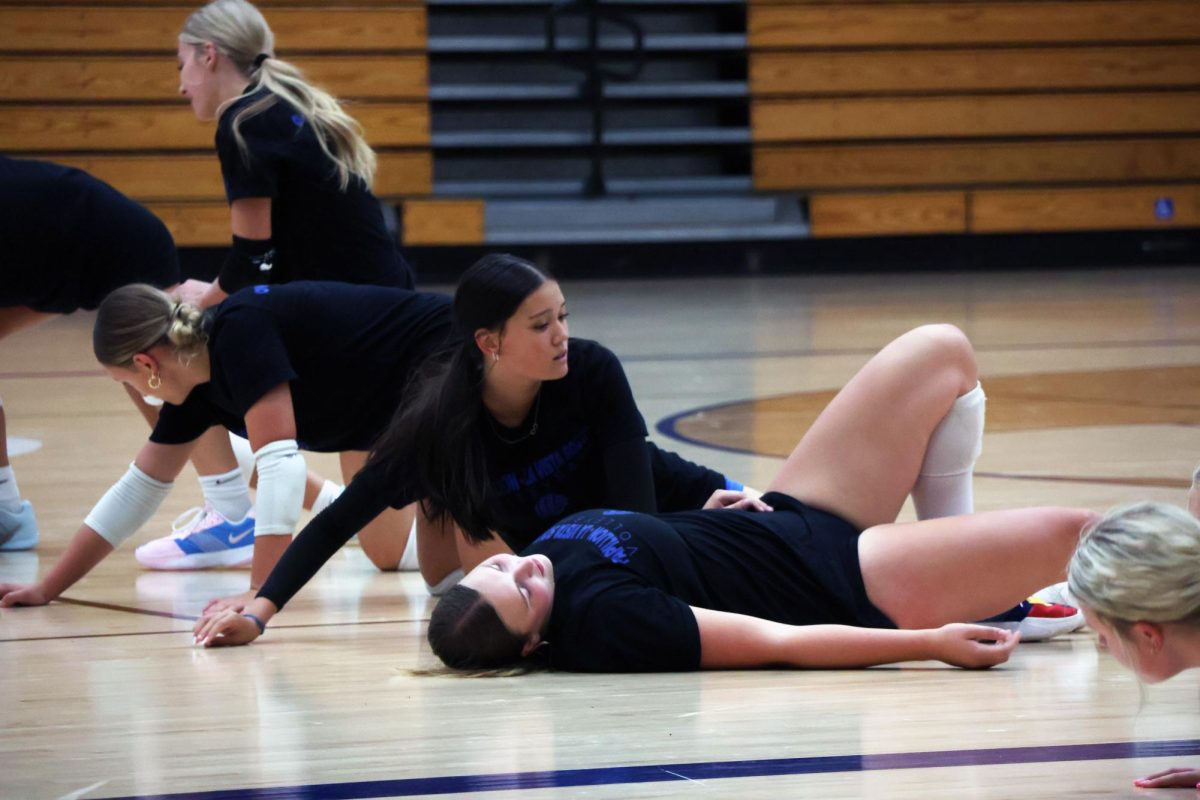





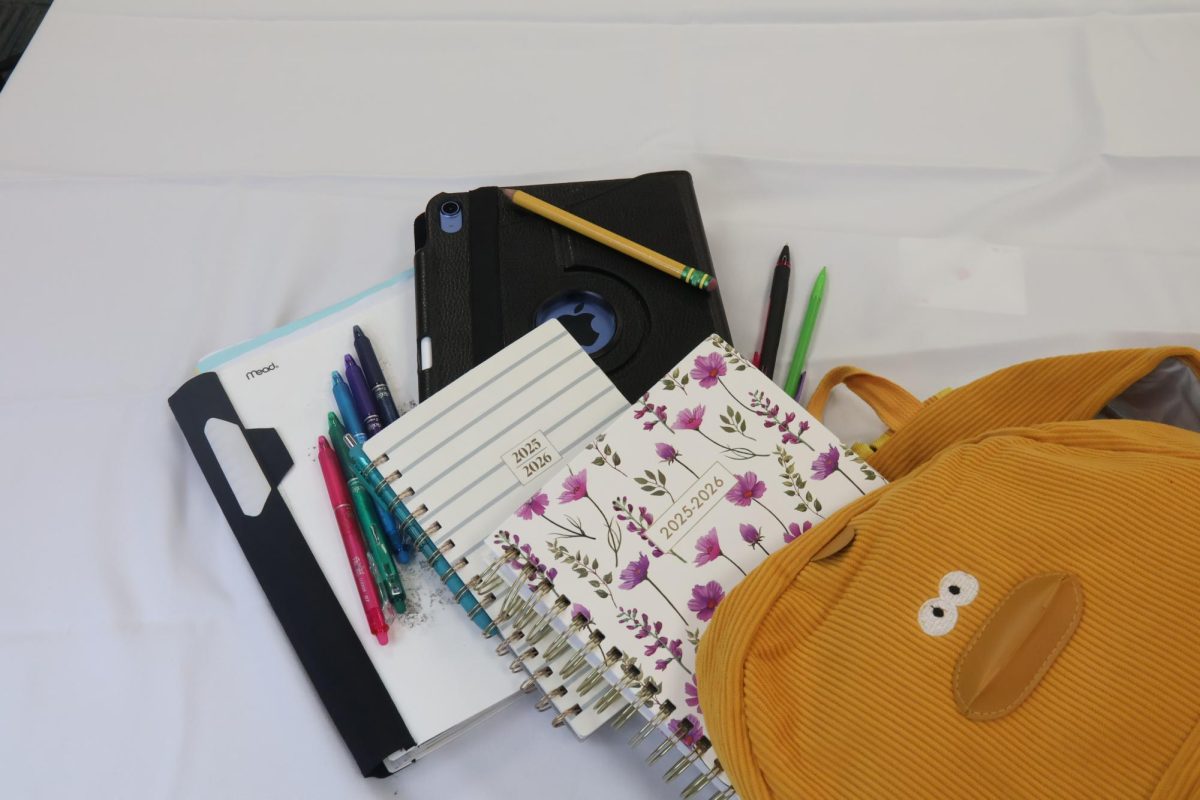









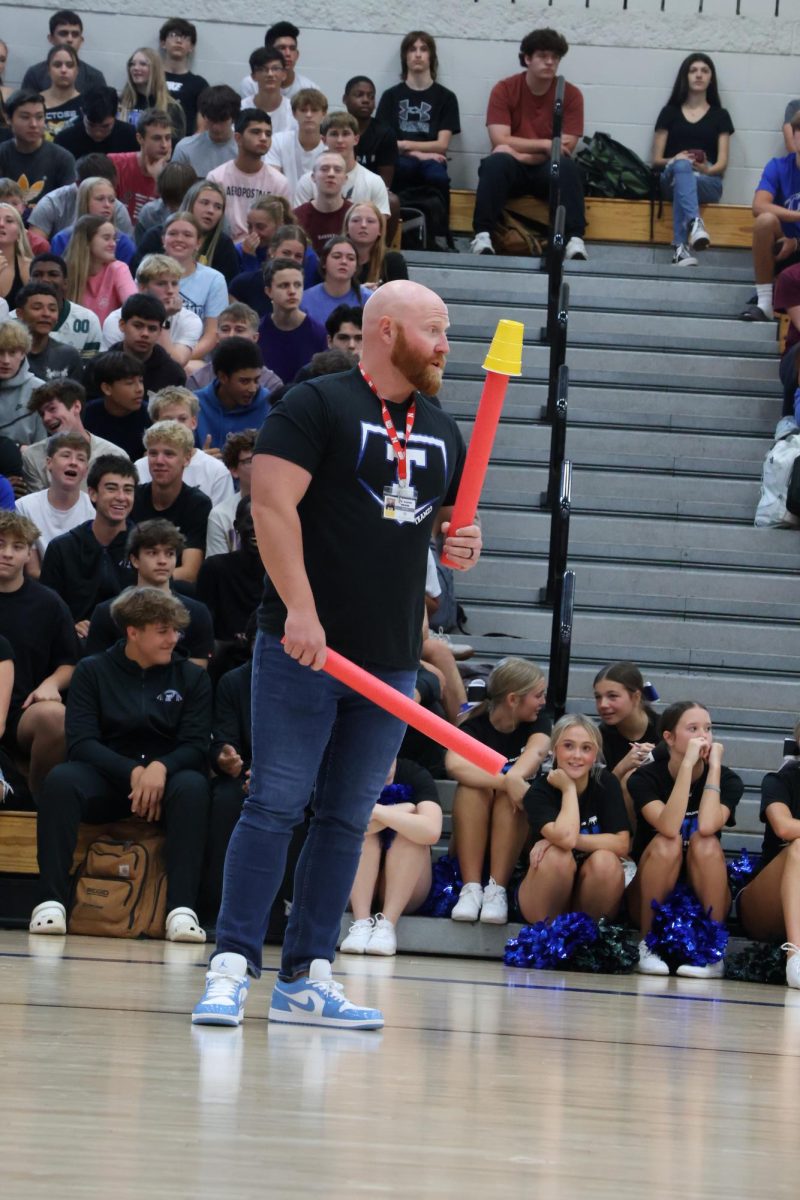

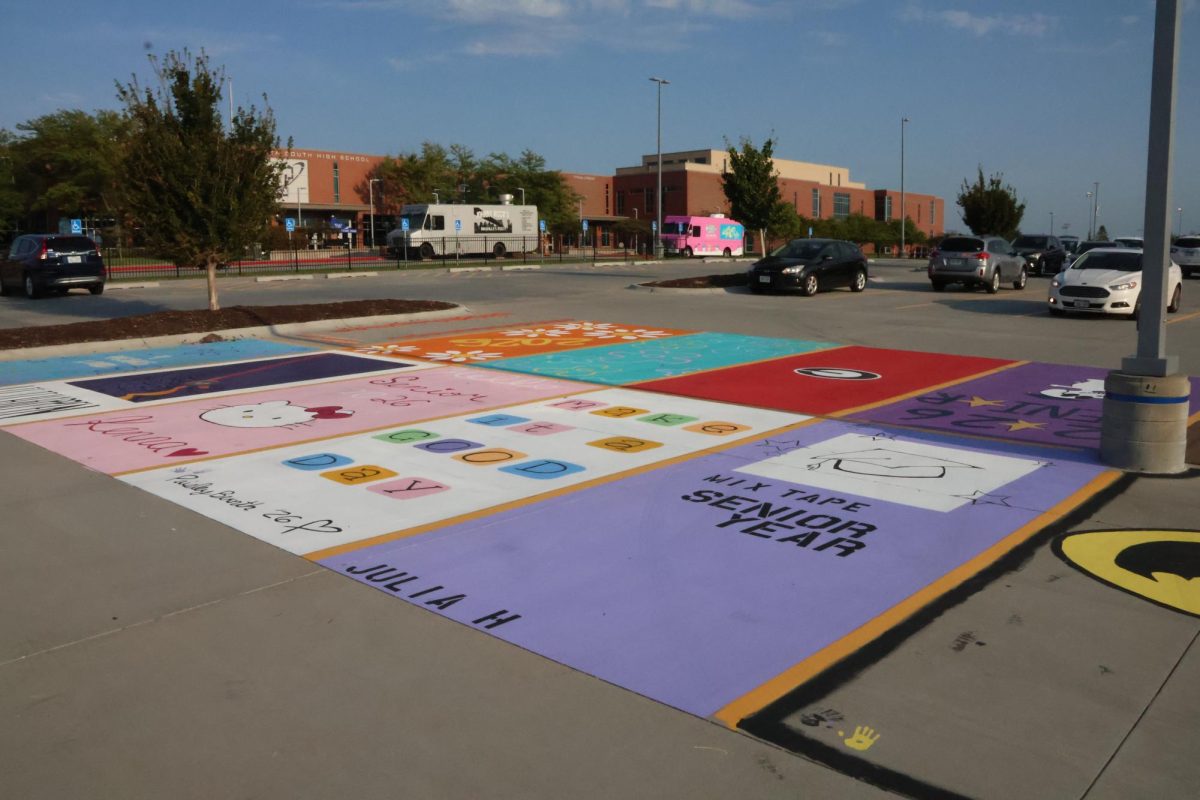
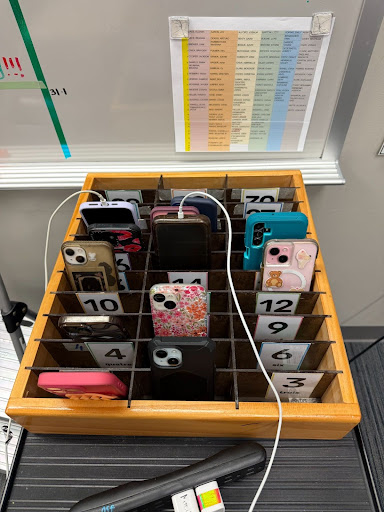

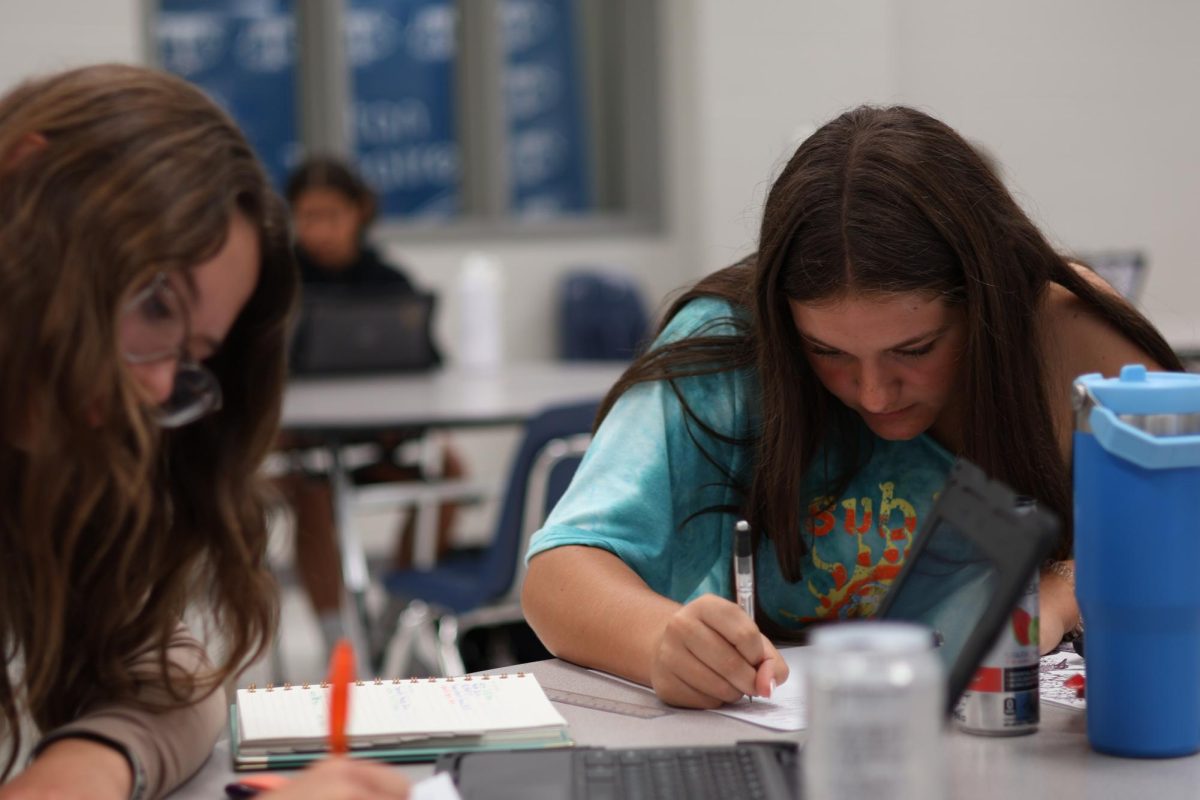
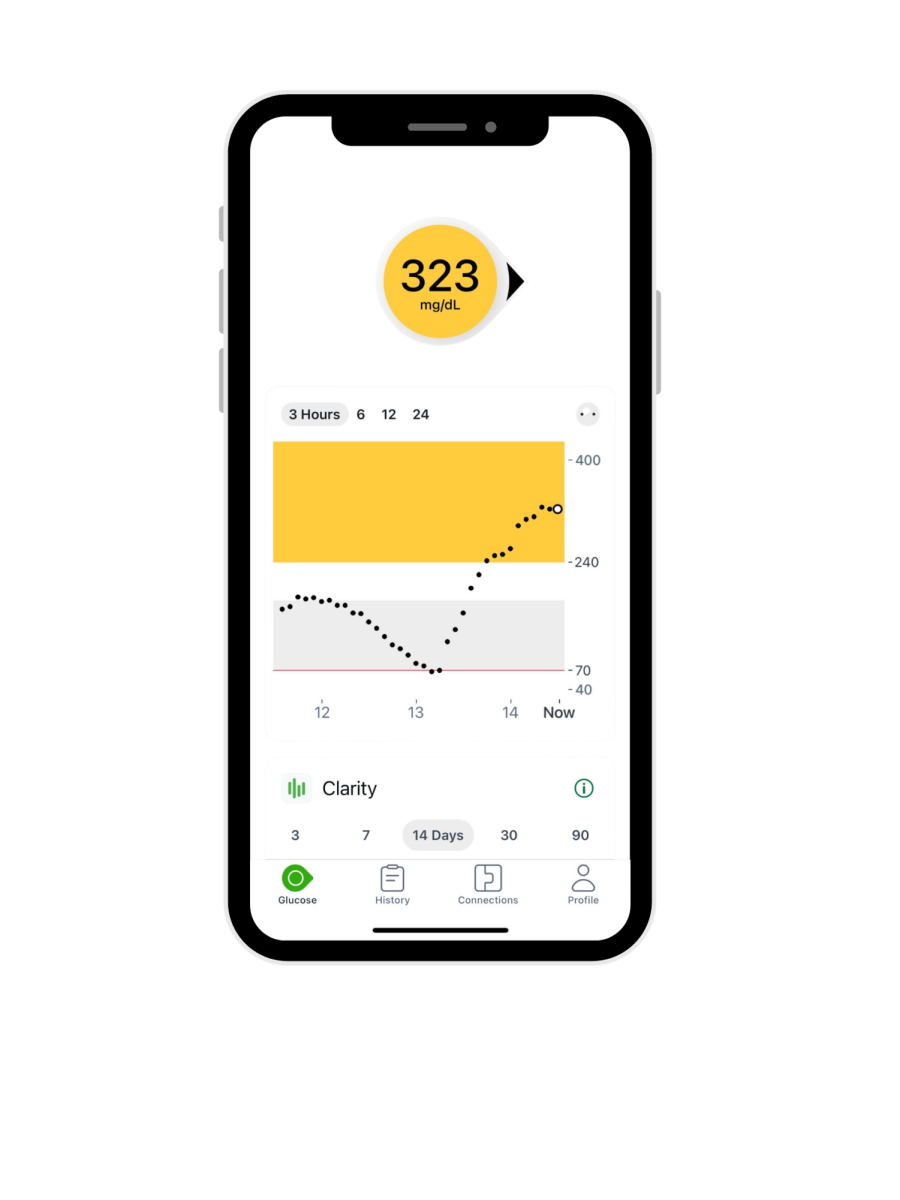



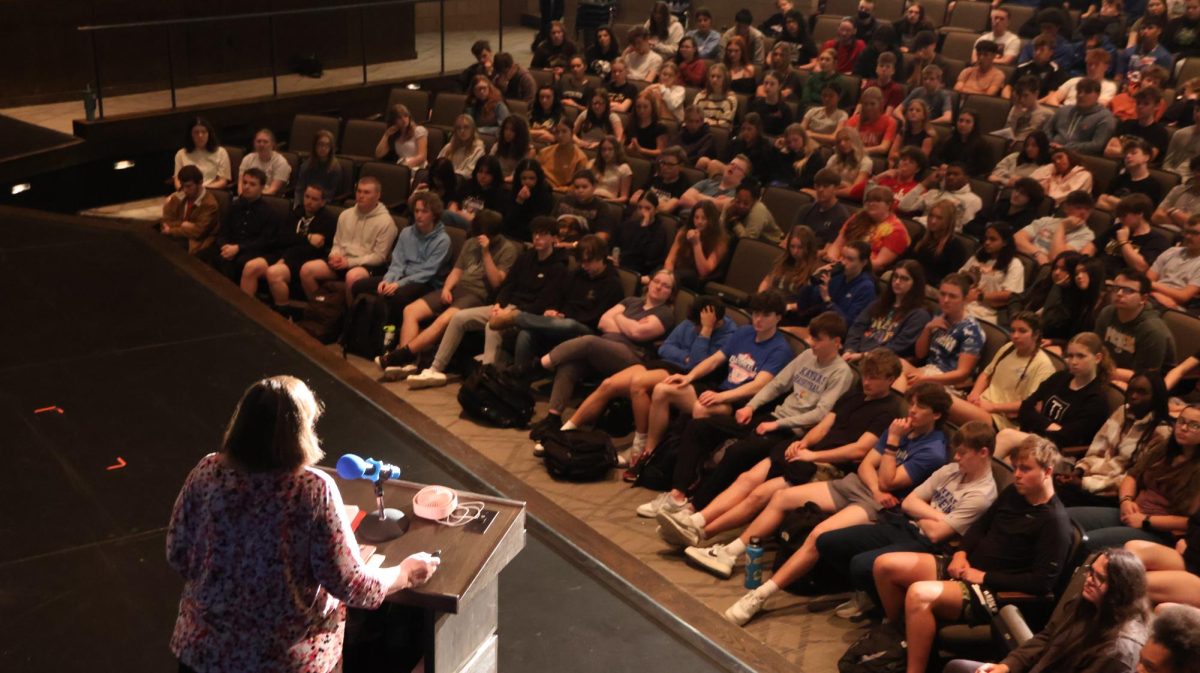

Mrs Paulson • Sep 3, 2025 at 2:04 am
As a parent I would want my child to have access to their phone in case of a school shooting or other emergency. It is good to have structure and rules around phone use but unlike 30 years ago students face events that we did not! Let parents decide if their 15 to18 year old student is responsible enough and what needs they have. Let’s keep government out of these things!